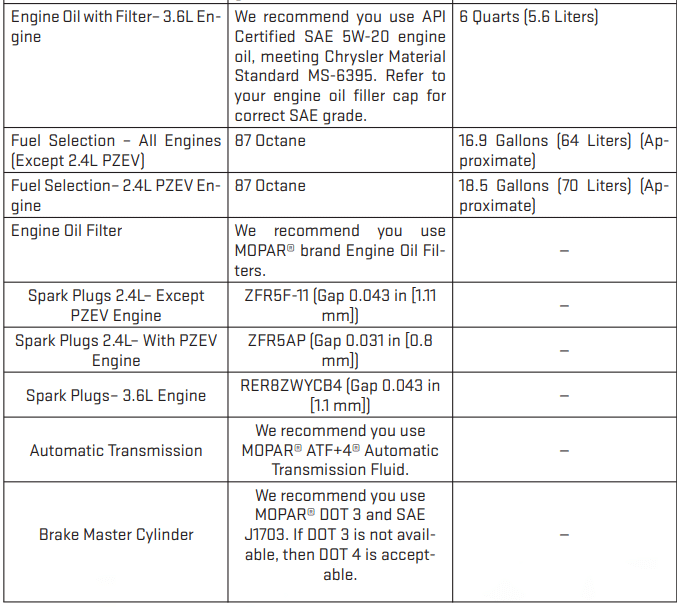The Dodge Avenger is a front-wheel-drive, mid-sized sedan that was produced by the Dodge division of Chrysler. With its debut in 1995, the Avenger provided an attractive alternative for consumers in the market for a sporty yet practical vehicle.
The Avenger was produced in two generations. The first generation, available from 1995 to 2000, was a two-door coupe that combined a sporty exterior with a comfortable, roomy interior. It was offered with a choice of a four-cylinder or V6 engine and a four-speed automatic or five-speed manual transmission.
After an eight-year hiatus, the Avenger nameplate returned in 2008 as a four-door sedan, representing the second generation that continued until 2014. This model featured a more muscular design, and enhanced performance, and came equipped with a four-speed or six-speed automatic transmission.
The Dodge Avenger is praised for its strong engine performance, comfortable ride, and user-friendly technology. However, like all vehicles, maintaining the Avenger’s peak performance requires regular maintenance, particularly regarding the transmission fluid.

The Importance of Transmission Fluid in a Vehicle
Transmission fluid plays a pivotal role in the overall operation and performance of a vehicle. Here are the main functions of the transmission fluid:
- Lubrication: The fluid provides lubrication to the many moving parts within the transmission system, reducing friction, preventing overheating, and reducing wear and tear.
- Cooling: The fluid helps cool the transmission by carrying heat away from the moving parts. This function is crucial as transmissions generate a significant amount of heat, and without proper cooling, components could warp or melt, leading to significant damage.
- Power Transfer: In automatic transmissions, the fluid is pressurized and used as a hydraulic fluid to facilitate gear shifts and transmit power from the engine to the drive wheels.
- Cleaning: Transmission fluid often contains detergents that help clean the transmission by preventing the build-up of sludge and debris.
To ensure that the transmission fluid can perform these tasks effectively, it’s essential to use the correct type and maintain proper fluid levels, and change the fluid regularly. Now let’s delve into the specific transmission fluid requirements for the Dodge Avenger.
2008 2009 2010 2011 2012 2013 2014 Dodge Avenger Transmission Fluid Capacity And Transmission Fluid Type
Understanding the appropriate transmission fluid type and capacity for your vehicle is critical for its performance and longevity. Here, we’ll break down this information for both generations of the Dodge Avenger:
The first-generation Dodge Avenger, equipped with a four-speed or six-speed automatic transmission, requires Mopar ATF+4 transmission fluid. The fluid capacity for the four-speed automatic transmission is approximately 9.2 quarts for a dry fill, while the six-speed automatic transmission requires around 9.0 quarts.
Again, please note that these capacities are for a dry fill. During a typical service, you’ll likely need around half of these quantities due to the residual fluid left in the transmission.
| Gearbox | Fluid capacity | Fluid type |
|---|---|---|
| 4-Speed 41TES Automatic | Total fill – 9.2 quarts Initial fill – 4.1 quarts | Mopar ATF+4 |
| 6-Speed 62TE Automatic | Total fill – 9 quarts Initial fill – 5.5 quarts | Mopar ATF+4 |
These figures are estimates and can vary based on specific models and operating conditions. Always refer to your vehicle’s owner’s manual for the most accurate information, and consult a professional mechanic if you’re unsure about any aspect of transmission fluid maintenance.

The Essentiality of Regular Transmission Fluid Changes
Regularly changing your transmission fluid is an integral part of vehicle maintenance that should not be overlooked. Much like your engine oil, transmission fluid is susceptible to heat, friction, and contaminants over time, which can degrade its effectiveness. Here are a few key reasons why regular transmission fluid changes are essential:
- Optimal Performance: Fresh transmission fluid ensures smooth gear shifts, optimal fuel efficiency, and overall top-notch performance. Old, degraded fluid can lead to poor transmission response, causing rough or erratic shifting.
- Prevent Overheating: Transmission fluid acts as a coolant, drawing heat away from the transmission components. As the fluid ages, its ability to cool effectively diminishes, increasing the risk of overheating.
- Reduced Wear and Tear: Fresh fluid provides better lubrication, reducing friction between transmission components and thereby minimizing wear and tear.
- Avoiding Costly Repairs: Failure to change transmission fluid at recommended intervals can lead to a buildup of sludge and debris inside the transmission, which can cause significant damage over time. Transmission repairs can be quite expensive; thus, regular fluid changes are a cost-effective preventative measure.
- Longer Transmission Life: Regularly changing your transmission fluid can significantly extend the life of your transmission, and by extension, the lifespan of your vehicle.
Typically, manufacturers recommend changing the transmission fluid every 56,000 miles, but this can vary depending on the vehicle make and model, driving conditions, and driving habits. Always refer to your vehicle’s owner’s manual for the most accurate information.
How Much Does It Cost To Change The Transmission Fluid In Dodge Avenger?
The cost of changing the transmission fluid in a Dodge Avenger can vary based on several factors, such as your location, the exact model of your Avenger, and the type of service you’re getting. The average cost for a transmission fluid change can range from $100 to $200.
This cost typically includes draining the old fluid, replacing it with new fluid, and labor. If you opt for a transmission flush, which involves removing nearly all the old fluid and contaminants from your transmission, you can expect to pay a bit more, typically around $200 to $300.
It’s always wise to contact a few local service centers or mechanics to get an accurate quote based on your specific situation. Keep in mind that regular transmission maintenance can help you avoid more costly repairs in the future. Regular maintenance can also extend the life of your transmission and improve your car’s overall performance.















